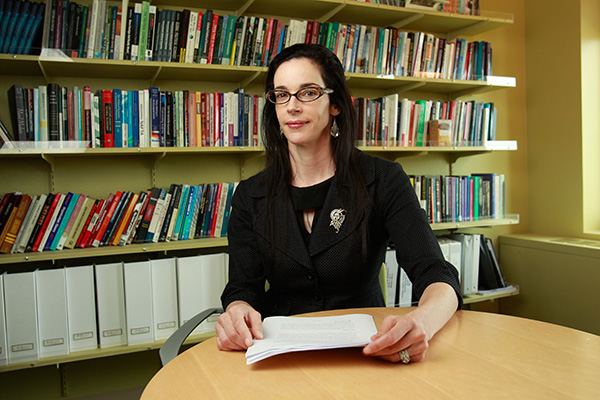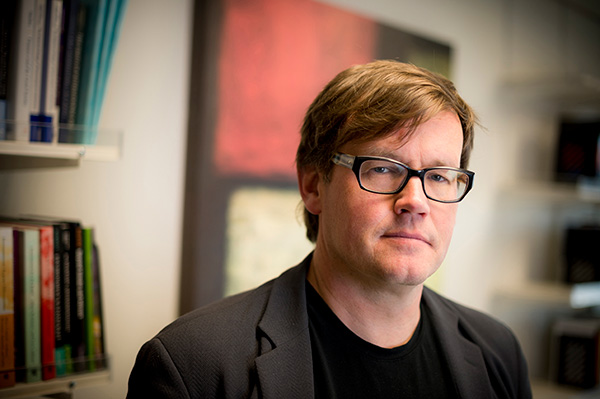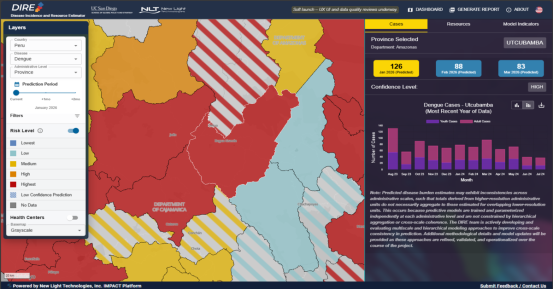The Making of a Revolution
UC San Diego political scientists show exactly why individual behavior matters — especially when it comes to who’s leading the country
Published Date
By:
- Anthony King
Share This:
Article Content

(Courtesy School of Global Policy and Strategy)
Political scientists have, for years, assumed leaders matter because they represent specific interest groups. Personalities and other individual traits are often seen as much less important — plop any person into decision-maker positions, and the results will be the same.
But what happens when someone with an inflated ego or little experience becomes the one in control? What happens when an incredibly patient person is making world-changing decisions? Wouldn’t that change the game?
A group of political scientists at the University of California San Diego think so, and gained the support of a leading academic journal to expand the conversation. Curated by Emilie M. Hafner-Burton, Stephan Haggard and David G. Victor of the School of Global Policy and Strategy and David A. Lake of the Department of Political Science, the International Organization Foundation published a 277-page special issue dedicated to “The Behavioral Revolution and International Relations.”
Listen: “The Making of a Revolution” with Emilie Hafner-Burton
“The behavioral revolution in international relations raises long-standing questions about decision making, but in the context of new models of individual motivation and behavior,” the authors write in the introductory essay. In short, ambiguity, emotion, misperception, overconfidence, poor choice making and quick thinking all make a difference.
Playing games
Academia has long felt individuals don’t much matter in the “game” of international relations and global governance. The same could be said for economics — numbers, in terms of gains and losses, matter most — but the UC San Diego group believes there is more than enough room in the conversation to think outside of the box.
“A prevailing idea is you can take a person from the phone book, put them into the same situation, crank through our theories, and you should get similar results, because our theories are mainly about institutions, power relations and states. And that’s just not quite right in the real world,” Hafner-Burton said.

Emilie Hafner-Burton (Courtesy School of Global Policy and Strategy)
The Prisoner’s Dilemma, the Stanford Marshmallow Experiment and many other game theories in international relations all allow for a predictable outcome. But what has yet to be predicted are the pieces that lead to a decision in the first place. The special issue looks at traditional rationalism, pulls from economics, psychology and cognitive science, and puts into perspective how things may actually be different.
Policy makers often look at and make decisions at the institutional level, Hafner-Burton said. What happens within the G20 as a whole is far more important than what happens when someone like Donald Trump takes office, becoming an influencer in this decades-old institution.
“It’s important because we spend so much time in the field of international relations thinking about big, large-scale processes like war and peace, environmental climate change, human rights violations – you name it,” Hafner-Burton said. “We’re always talking about states and states’ motivations … but we rarely talk about people.”
Trump may be a special case, but the researchers instead pull from two strikingly similar presidents, handling a world problem very differently: George H.W. Bush’s engagement in the Persian Gulf during his tenure as president and George W. Bush’s engagement several years later. The rationalist would have expected similar results; it was certainly not the case.
Learning, one to another
The research ultimately published in the journal was discussed and workshopped at two, two-day conferences held at UC San Diego in early 2014 and align exactly with the Laboratory on International Law and Regulation (ILAR), the research lab headed by Hafner-Burton and Victor at the UC San Diego School of Global Policy and Strategy. They formed the lab to stop thinking in silos on specific issues: in human rights, for example, or climate change, or trade. What is learned from one, might help in another, Hafner-Burton said.
The mission is also to look at how people interact, not just the institutions in which they work or influence — though Hafner-Burton is quick to say that states do remain important to the conversation. It is just that academics, she said, have not investigated other actors in as much detail.

David Victor (Photo by Eric Jepsen / UC San Diego Publications)
Hafner-Burton, Victor and ILAR are supporters of mentoring, and this project encapsulates all those tenants as well. They frequently support young Ph.D. researchers from the Division of Social Sciences Political Science and Economics departments. They frequently send students to large, global conferences. For this project, they helped sharpen and develop the ideas and research of junior faculty who often do not have the opportunity to be published in such a high-level journal.
But bottom line: is their collective work a revolution? Is this controversial?
“It’s not just if you believe behavior is important, it’s whether you believe individual preferences are important,” Hafner-Burton said. “That’s a genuine debate that we need to have in the field of international relations. Does it matter who Donald Trump is, or are the institutions going to reign him in? Does it matter what the voters think, or will ultimately the institutions reign them in, too?”
Share This:
Stay in the Know
Keep up with all the latest from UC San Diego. Subscribe to the newsletter today.



